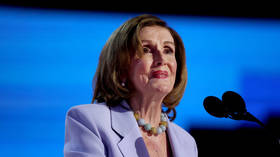Fight against AIDS to open door for Indian gays?
Across South Asia the subject of homosexuality is taboo, and India is no exception. It is also illegal there, despite calls from the United Nations for a change in the law.
In India, open discussion about sexuality is still rare and considered embarrassing. The law banning homosexual contact was enacted in 1860.
“The law describes homosexuality as unnatural sex and prescribes a punishment of ten years to life, and also a fine,” explains criminal lawyer Jaswinder Singh.
But the spread of AIDS is doing much to bring the subject of homosexuality into the light, with the underground gay community being identified as a high-risk group.
India’s NAZ Foundation, a non-government organisation working to prevent AIDS and support sufferers, has appealed for the law to be reviewed. NAZ Foundation programme coordinator Yadavendra Singh says getting health care for AIDS sufferers means the law needs to change:
“If the law is repealed, it will allow more people infected with HIV to access the health care system.”
Being overtly gay, in appearance, style or mannerism, can lead to life-long difficulties in a culture that has little tolerance or understanding of homosexuality.
India’s homosexuals are torn between conforming to social norms law and respecting their own nature, in a society where even remaining single is questioned amidst pressure to marry and appear normal.
“It is a compromise of a kind. I have already told her about myself and my boyfriends and I also know about her – so there is nothing hidden in our life. We are getting married to fit in with society,” homosexual Kali says. “Otherwise, people would ask why it is that all the other three boys in the family are married and the fourth one is not. That is why I am getting married.”
But much still depends on whether the Indian government has the will to overturn a 100-year-old law which has institutionalised discrimination of India’s gays.














